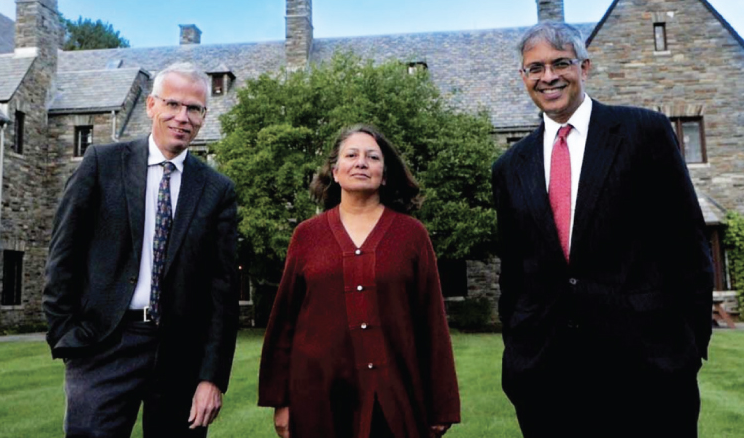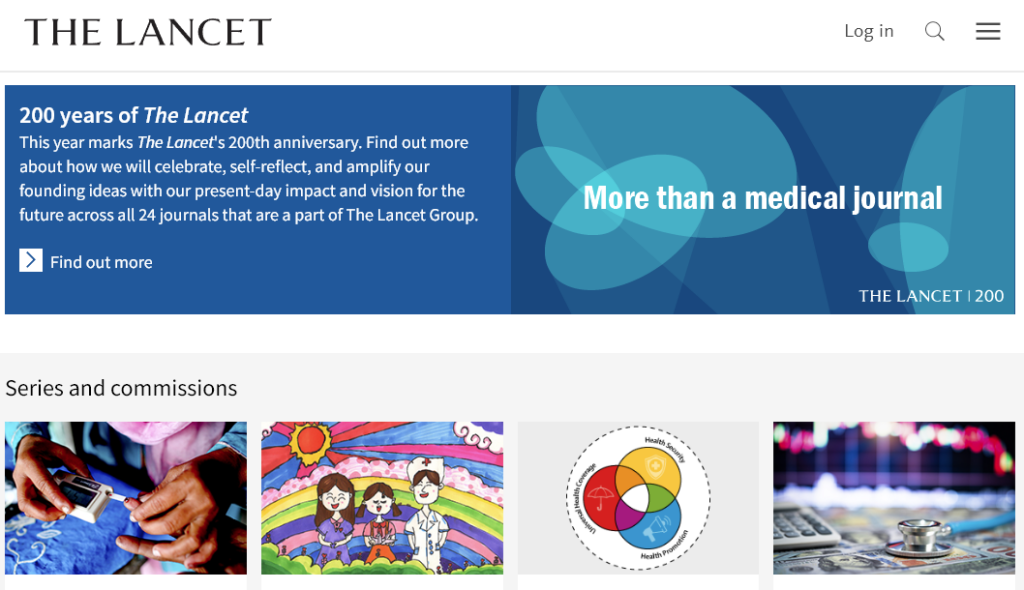There are 14 American cities that have set targets to ban meat, dairy, and private vehicles by 2030 as part of their efforts to combat climate change[1][2][3]. The cities include:
- Austin
- Boston
- Chicago
- Houston
- Los Angeles
- Miami
- New Orleans
- New York City
- Philadelphia
- Phoenix
- Portland
- San Francisco
- Washington, D.C.
These cities are part of the C40 Cities Climate Leadership Group, a global organization focused on climate action. The aim of these targets is to reduce greenhouse gas emissions associated with the production and consumption of meat and dairy products, as well as the use of private vehicles.
By promoting sustainable diets and encouraging alternative modes of transportation, these cities hope to contribute to the reduction of carbon emissions and mitigate the impacts of climate change[5][6]. It’s important to note that these targets represent goals set by the cities themselves and may vary in terms of implementation and specific measures taken.
- Citations:
- [1] https://www.tigerdroppings.com/rant/o-t-lounge/new-orleans-is-1-of-14-cities-who-has-a-target-to-eliminate-cars-meat-and-dairy-by-2030/109396687/
- [2] https://thefederalist.com/2023/08/19/these-14-american-cities-have-a-target-of-banning-meat-dairy-and-private-vehicles-by-2030/
- [3] https://freerepublic.com/focus/f-bloggers/4176268/posts
- [4] https://texags.com/forums/16/topics/3393360
- [5] https://gothamist.com/news/nyc-will-target-food-choices-in-its-battle-against-climate-change
- [6] https://www.c40.org/news/a-sustainable-diet-by-2030-is-key-to-solving-the-climate-emergency/
C40 Justifications
Banning Meat and Dairy: The idea of banning meat and dairy products is often tied to environmental concerns, particularly related to the greenhouse gas emissions associated with livestock production. Livestock farming is a significant contributor to methane emissions, a potent greenhouse gas. Reducing or eliminating meat and dairy consumption can have positive effects on carbon emissions, land use, and water consumption.
Cities might promote such measures to address climate change and promote sustainable diets. However, outright bans on these products could be challenging to implement due to cultural and dietary preferences, economic impacts on local farmers, and potential resistance from various stakeholders.
Banning Private Vehicles: Banning private vehicles is a more radical idea that aims to reduce urban congestion, air pollution, and greenhouse gas emissions. The idea is to promote public transportation, cycling, walking, and shared mobility services as alternative modes of transportation. Some cities are implementing car-free zones or restricted driving areas to encourage sustainable transportation options.
However, banning private vehicles entirely can have significant social and economic implications. Many people rely on personal vehicles for various reasons, including accessibility and convenience, especially in areas with limited public transportation infrastructure. Transitioning away from private vehicles would require substantial investments in public transit and infrastructure.
What are C40 cities?
C40 Cities Climate Leadership Group is a network of nearly 100 mayors of the world’s leading cities that are united in action to confront the climate crisis[2][3]. The group was created and led by cities, and it is focused on fighting the climate crisis and driving urban action that reduces greenhouse gas emissions and climate risks, while increasing the health, wellbeing and economic opportunities of urban residents[1]. Cities in the C40 network earn their membership through action, and membership operates on performance-based requirements, not on fees[2]. The C40 Leadership Standards set the minimum requirements for all member cities and safeguard the integrity of C40 as a network of climate leaders[2]. The network provides a suite of services in support of their efforts, including direct technical assistance, facilitation of peer-to-peer exchange, and research, knowledge management & communications[1]. The C40 network is a set of major cities around the world that have committed to fighting climate change and reducing greenhouse gas emissions[5].
So, these are not cities, but merely politicians who joined the Freemasonry, and think that they’re smarter than us because they can talk.
Citations:
- [1] https://en.wikipedia.org/wiki/C40_Cities_Climate_Leadership_Group
- [2] https://www.c40.org/about-c40/
- [3] https://www.c40.org
- [4] https://www.c40.org/cities/
- [5] https://www.iberdrola.com/social-commitment/c40-cities
- [6] https://www.linkedin.com/company/c40-cities-climate-leadership-group
C40 Cities Funding Sources
C40 Cities is supported by a variety of funders and partners, including governments, philanthropic organizations, and multilateral institutions[1]. The UK government through the Foreign, Commonwealth and Development Office (FCDO) is one of the major funders of C40 Cities[1]. The Global Environment Facility, the world’s largest multilateral trust fund focused on enabling developing countries to invest in nature, is another major funder of C40 Cities[1].
The C40 Cities Finance Facility (CFF) is another initiative that facilitates access to finance for climate change mitigation and resilience projects in urban areas by providing technical assistance and other support[3]. C40 Cities also works with partners such as the Global Covenant of Mayors for Climate & Energy, the City Climate Finance Leadership Alliance (CCFLA), ICLEI, and WRI to promote access to finance for cities[3].
In addition, the C40 Inclusive Climate Action (ICA) Cities Fund, which is designed to help cities develop and implement climate projects with equity and inclusion principles, is supported by the Open Society Foundations[2][5]. C40 Cities has also led a series of successful cross-sectoral collaborations to allocate investment into urban climate action projects, particularly in the Global South[6].
So, this is how Smart Politicians are bribed to smash the planet with senseless pseudoscience like global warming that turned into global cooling. So, they have to rebrand it to Climate Change. But, it’s not climate change enough, so they have to burn something. This is the New Normal.
Citations:
- [1] https://www.c40.org/funders-partners/
- [2] https://www.c40.org/what-we-do/raising-climate-ambition/inclusive-thriving-cities/ica-cities-fund/
- [3] https://www.c40.org/what-we-do/influencing-the-global-agenda/financing-the-green-transition/
- [4] https://www.linkedin.com/company/c40-cities-climate-leadership-group
- [5] https://www.c40.org/case-studies/ica-cities-fund-warsaw/
- [6] https://www.c40.org/news/record-investment-in-global-south/
C40 Cities Accomplishments
Since its founding in 2005, the C40 Cities Climate Leadership Group has accomplished several initiatives and projects aimed at fighting climate change and reducing greenhouse gas emissions. Here are some of the accomplishments of the group:
- The C40 Cities network has grown to include 96 cities around the world, representing one twelfth of the world’s population and one quarter of the global economy[1].
- C40 Cities has facilitated the development and implementation of ambitious climate projects led by cities, such as the C40 Reinventing Cities competition, which aims to transform underutilized urban spaces into sustainable and resilient sites[2].
- The C40 Cities Bloomberg Philanthropies Awards celebrate the most ambitious, impactful, and inclusive global climate projects led by cities[2].
- C40 Cities has provided direct technical assistance, facilitated peer-to-peer exchange, and conducted research to support cities in their efforts to reduce greenhouse gas emissions and climate risks[1].
- C40 Cities has positioned cities as a leading force for climate action around the world, defining and amplifying their call to national governments for greater support and autonomy in creating a sustainable future[1].
- C40 Cities has collaborated with partners such as the Global Covenant of Mayors for Climate & Energy, the City Climate Finance Leadership Alliance (CCFLA), ICLEI, and WRI to promote access to finance for cities[3].
- The C40 Inclusive Climate Action (ICA) Cities Fund, which is designed to help cities develop and implement climate projects with equity and inclusion principles, is supported by the Open Society Foundations[2][5].
- C40 Cities has led a series of successful cross-sectoral collaborations to allocate investment into urban climate action projects, particularly in the Global South[6].
Overall, C40 Cities has played a significant role in promoting urban climate action and supporting cities in their efforts to reduce greenhouse gas emissions and climate risks, while increasing the health, wellbeing, and economic opportunities of urban residents.
Citations:
- [1] https://en.wikipedia.org/wiki/C40_Cities_Climate_Leadership_Group
- [2] https://www.c40.org/awards-2022-winners/
- [3] https://www.c40.org/about-c40/our-history/
- [4] https://www.linkedin.com/company/c40-cities-climate-leadership-group
- [5] https://action4canada.com/c40-cities/
- [6] https://www.c40.org/awards/
According to their own articles, the C40 Cities network has made significant progress in reducing greenhouse gas emissions, but the exact amount of reduction achieved by each city is not provided. Here are some of the findings related to greenhouse gas emissions reduction:
- One third of the C40 Cities network has seen their greenhouse gas emissions fall over a 5-year period, achieving at least a 10% reduction[1].
- C40 Cities has identified a set of priority actions that cities can take to tackle climate change and air pollution simultaneously, placing the transport, buildings, and industry sectors at the top of the list. The research shows that if C40 member cities combine a decarbonized grid with ambitious action to clean up the transport, buildings, and industrial sectors, the resulting benefits would include an 87% reduction in greenhouse gas emissions[2].
- The 5% reduction in air pollution achieved across C40 cities last year is similar to the kind of greenhouse gas reduction needed to keep global heating below 1.5°C[3].
- The IPCC suggests that up to 70% of much-needed emission reductions could be achieved by improving consumption, and has urged cities to look at consumption-based emissions[4].
Overall, the C40 Cities network is making faster progress on the climate crisis than most others, but there is still much work to be done to achieve the necessary reductions in greenhouse gas emissions and mitigate the impacts of climate change[3][6].
Citations:
- [1] https://www.c40.org/news/27-cities-have-reached-peak-greenhouse-gas-emissions-whilst-populations-increase-and-economies-grow/
- [2] https://www.c40.org/benefits-urban-climate-action/
- [3] https://www.c40.org/news/c40-cities-are-making-faster-progress-on-the-climate-crisis-than-most-others-but-its-not-enough/
- [4] https://www.c40.org/news/consumption-emissions-report-spotlight/
- [5] https://www.c40.org/what-we-do/scaling-up-climate-action/urban-planning/
- [6] https://www.c40.org/what-we-do/scaling-up-climate-action/
List of C40 Member Cities
According to their grand plan 2030, edible insects are coming to C40 Cities by 2030. Here is a list of cities that have joined the C40 Cities Climate Leadership Group:
- Copenhagen, Denmark
- Paris, France
- Berlin, Germany
- Heidelberg, Germany
- Athens, Greece
- Milan, Italy
- Rome, Italy
- Venice, Italy
- Tokyo, Japan
- Delhi, India
- New York City, United States
- Istanbul, Turkey
- Madrid, Spain
- Rio de Janeiro, Brazil
- San Francisco, United States
- Melbourne, Australia
- Amsterdam, Netherlands
- Bengaluru, India
- Toronto, Canada
- Seattle, United States
- Stockholm, Sweden
- São Paulo, Brazil
- Nairobi, Kenya
- Tel Aviv – Yafo, Israel
- Los Angeles, United States
- Bogotá, Colombia
- Buenos Aires, Argentina
- Amman, Jordan
- Tshwane, South Africa
- Chicago, United States
- Philadelphia, United States
- Singapore
- Kuala Lumpur, Malaysia
- Portland, United States
- Miami, United States
- Zhenjiang, China
- Barcelona, Spain
- Chengdu, China
- Vancouver, Canada
- Kolkata, India
- Oslo, Norway
- Lima, Peru
- Dalian, China
- Salvador, Brazil
- Seattle, United States
- Stockholm, Sweden
- Tel Aviv – Yafo, Israel
- Los Angeles, United States
- Bogotá, Colombia
- Buenos Aires, Argentina
- Amman, Jordan
- Tshwane, South Africa
- Chicago, United States
- Philadelphia, United States
- Singapore
- Kuala Lumpur, Malaysia
- Portland, United States
- Miami, United States
- Zhenjiang, China
- Barcelona, Spain
- Chengdu, China
- New York City, United States
- Vancouver, Canada
- Berlin, Germany
- Kolkata, India
- Oslo, Norway
- Lima, Peru
- Rio de Janeiro, Brazil
- Dalian, China
- Salvador, Brazil
- Amsterdam, Netherlands
- Bengaluru, India
- Toronto, Canada
- Paris, France
- Seattle, United States
- Stockholm, Sweden
- São Paulo, Brazil
- Nairobi, Kenya
- Tel Aviv – Yafo, Israel
- Los Angeles, United States
- Bogotá, Colombia
- Buenos Aires, Argentina
- Amman, Jordan
- Tshwane, South Africa
- Chicago, United States
- Philadelphia, United States
- Singapore
- Kuala Lumpur, Malaysia
- Portland, United States
- Miami, United States
- Zhenjiang, China
- Barcelona, Spain
- Chengdu, China
- New York City, United States
- Vancouver, Canada
- Berlin, Germany
- Kolkata, India
Please note that this list may not be exhaustive, and there may be additional cities that have joined the C40 Cities network. Still think this is all conspiracy theories?
Why do we consider this as an elaborate gameplay to eliminate YOU, rather than reduce carbon emissions, or greenhouse gases?
The simplest answer is this: there are existing technologies, with one being as old as your great-granddad, in fact. They could end the use of fossil fuels overnight, but they don’t want that either. They just want to eliminate you, using whatever flimsy excuses their stupid brains could come up with.
Can you provide us with one verifiable free energy technology that you know of?
The wireless radio broadcast is merely a byproduct of the free wireless electric power broadcast designed by Nikola Tesla in the 1890s.
The typical radio broadcast system today sends out radio signals at 25,000 volts, subsequently inducing 5 millivolts into your radio receiver—just enough to drive your earphones. But when amplified in later stages, it can drive any loudspeaker.
Since it is an open system, you won’t hear those radio stations ever complain that they were overloaded due to high audience demand.
Now, consider Tesla’s magnifying transmitter, which broadcasted at 200 million volts of sheer power in one of his experiments. Do you truly believe that wireless power broadcast is still impossible?
All we need to do is increase Tesla’s transmission voltage by three times, and we can have 120 volts of free household and commercial electric power, utilizing the same radio broadcast technology that we continue to use today!”

So, when they say that they’re building smart cities for you, where you can’t own anything, and all the restaurants are feeding edible insects, because it will make you happy, realize that you’re in Hell, Bud.
You still have time to do something, right now.
Organize, organize, organize.



